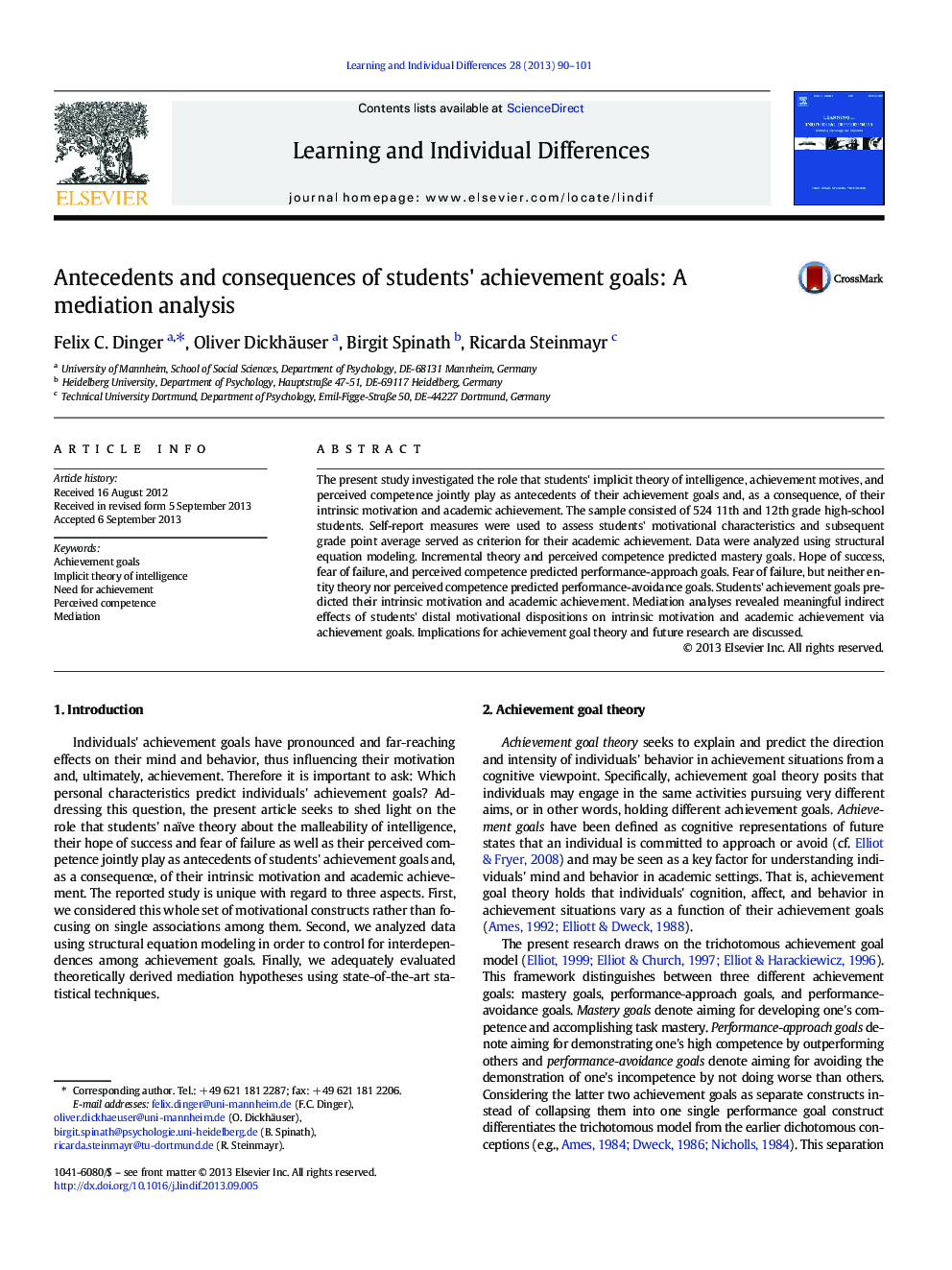| Article ID | Journal | Published Year | Pages | File Type |
|---|---|---|---|---|
| 364690 | Learning and Individual Differences | 2013 | 12 Pages |
•We report a comprehensive study of antecedents and consequences of achievement goals.•Motivational dispositions explained substantial variance in achievement goals.•Achievement goals predicted intrinsic motivation and subsequent academic achievement.•Motivational dispositions predicted these outcomes indirectly via achievement goals.•Neither entity theory nor perceived competence predicted performance-avoidance goals.
The present study investigated the role that students' implicit theory of intelligence, achievement motives, and perceived competence jointly play as antecedents of their achievement goals and, as a consequence, of their intrinsic motivation and academic achievement. The sample consisted of 524 11th and 12th grade high-school students. Self-report measures were used to assess students' motivational characteristics and subsequent grade point average served as criterion for their academic achievement. Data were analyzed using structural equation modeling. Incremental theory and perceived competence predicted mastery goals. Hope of success, fear of failure, and perceived competence predicted performance-approach goals. Fear of failure, but neither entity theory nor perceived competence predicted performance-avoidance goals. Students' achievement goals predicted their intrinsic motivation and academic achievement. Mediation analyses revealed meaningful indirect effects of students' distal motivational dispositions on intrinsic motivation and academic achievement via achievement goals. Implications for achievement goal theory and future research are discussed.
